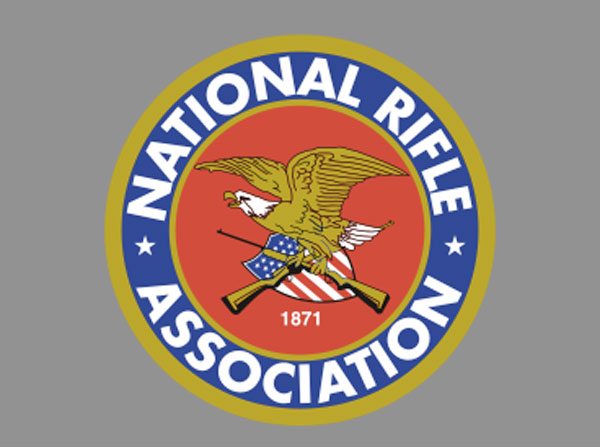
February 24, 2018; KMOV-TV (St. Louis, MO)
Almost a year ago, NPQ suggested that boycotts were a big part of the new face of corporate social responsibility, particularly when a business partner’s reputation threatens to taint your own. At the end of last week, we wrote about some of the abhorrent statements coming from the leadership of the National Rifle Association (NRA) in the wake of the school shooting in Florida that left 17 dead, many of them students:
The NRA’s own confused response appealed to the basest of values. At the Conservative Political Action Conference, the NRA’s Dana Loesch charged, “Many in legacy media love mass shootings. You guys love it. I’m not saying that you love the tragedy, but I am saying that you love the ratings. Crying white mothers are ratings gold to you and many of the legacy media.” (There’s so much wrong with this statement, but one not so subtle point is that the pain of white mothers losing their children to gun violence “secretly” moves us more than the similar pain of mothers of color. The statement cleverly reinforces various dominant narratives.)
Minutes later, the NRA’s president, Wayne LaPierre, warned of the ostensible socialist agenda behind the protests. “As usual, the opportunists wasted not one second to exploit tragedy for political gain,” LaPierre said, adding that 20th-century community organizer “Saul Alinsky would have been proud of the breakneck speed for gun control laws and the breathless national media eager to smear the NRA.”
This time, the students declared they had enough. Within days, they took their message to lawmakers, and many corporations decided to cut any business-related ties they maintained with the NRA. Relationships, including some public-facing partnerships, began to get severed, with the companies saying little about why.
This distancing often took the form of ending discount programs or other offers extended to NRA members. Delta Air Lines ended discounts on its flights, as did United Airlines. Car rental companies such as Enterprise, Alamo, Hertz, Avis Budget, and National also ended their contracts, and Sirva, which owns Allied and North American moving companies, has said they “no longer have an affiliate relationship with the NRA, effective immediately.” First National Bank of Omaha on Thursday said it was ending its offering of NRA-branded credit cards based on “customer feedback,” and MetLife ended some special insurance offerings.
As for FedEx, which has not yet cut ties, it got some special front-page treatment courtesy of the N.Y. Daily News:
A look at tomorrow’s front page:
Pressure is building for businesses like FedEx to boycott the NRA.https://t.co/rwRFpAsY35 pic.twitter.com/Yz53ynsY3p
Sign up for our free newsletters
Subscribe to NPQ's newsletters to have our top stories delivered directly to your inbox.
By signing up, you agree to our privacy policy and terms of use, and to receive messages from NPQ and our partners.
— New York Daily News (@NYDailyNews) February 25, 2018
A statement from the National Rifle Association, which has been throwing every desperate rhetorical line available into the situation, says that the businesses “have decided to punish NRA membership in a shameful display of political and civic cowardice.”
“In time, these brands will be replaced by others who recognize that patriotism and determined commitment to Constitutional freedoms are characteristics of a marketplace they very much want to serve,” the NRA said.
But a new CNN poll released on Sunday found that 7 in 10 people favor stricter gun laws now, in the wake of the Parkland shooting as compared to 52 percent in October—and this includes a majority of gun-owning households. And, as the Wall Street Journal reports, a larger question of divestment from gun companies themselves is surfacing:
The investment giant BlackRock Inc. said it was exploring ways to cull gun companies from the portfolios of clients who no longer wish to invest in them. In Florida, site of the latest tragedy, teachers expressed frustration that their retirement funds own gun stocks, following revelations that holdings included the maker of the assault rifle used to kill 17 students and educators at Marjory Stoneman Douglas High School in Parkland.
This may not be great news for gun companies. After a sales downturn, Remington, Federal Premium, SilencerCo, Ruger, and Daniel Defense have all announced layoffs since Trump took office. Some of these gun manufacturers contribute to the nonprofit NRA Institute for Legislative Action. This entity receives millions of dollars in donations from corporations, though those need not be disclosed. Neither is the group required to disclose the names of its contributors, but some, like Smith & Wesson and Sturm, Ruger & Company, have self-identified as having made large donations in the past.
But the NRA still has a powerful friend in their membership, which contributes impressively to the organization’s lobbying arm. In 2014, the NRA received $22 million from individual donors for its PAC—money it uses in part to contribute to politicians. These contributions from donors, according to CNN Money, tend to rise and fall with gun sales, though, and gun sales have dipped of late.
So, will the boycott force the NRA to change its stripes? Maybe not. But it adds momentum to the current movement and isolates some of the holdouts like FedEx, which, as this is written, faces a potential consumer boycott.—Ruth McCambridge













